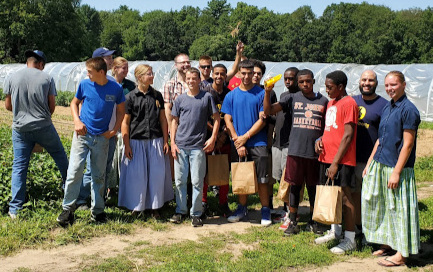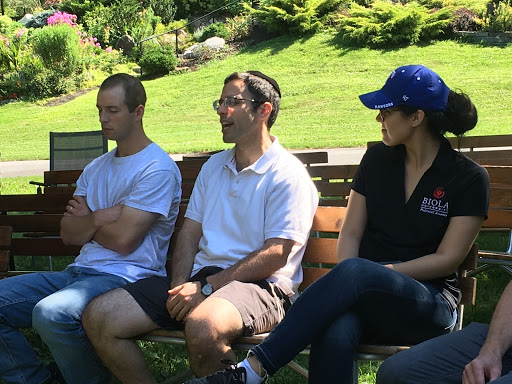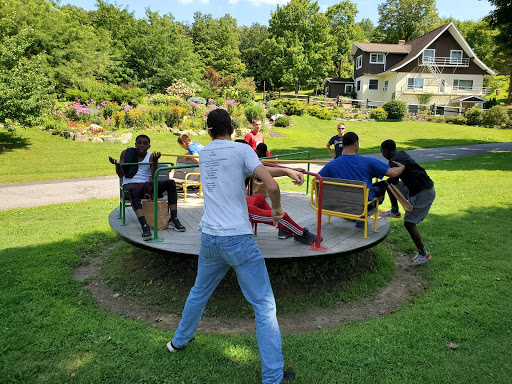In August 2019, RFI helped to coordinate a day-long gathering of Muslim and Christian youth, which was the third part of a four-part initiative made possible by Islamic Relief USA that seeks to bring together representatives of different faith groups in conversation and common projects. Blog articles summarizing the first and second events in this initiative are available on the RFI website.
In our time, America has become increasingly polarized. This has affected relations between religious communities, particularly between Christians and Muslims of diverse ethnic, political, and geographic backgrounds. These divisions are intensified by the lack of contact between believers of these faiths.
The Religious Freedom Institute (RFI) and Islamic Relief USA (IRUSA) believe that religion is a source of harmony and stability for the common good and have partnered for a series of projects in an effort to push back against this polarization.
In August 2019, RFI and IRUSA partnered with Salam Sports NYC, a Muslim-run, non-profit youth sports league based in Brooklyn, to bring a group of African American and Arab American Muslim youth to visit the Bruderhof community in Rifton, about 90 miles north in the Hudson Valley. Finding their roots in the Anabaptist tradition, the Bruderhof live together in settlements and strive to follow patterns of common life found among early Christians.
When they arrived at the Bruderhof’s idyllic Woodcrest community, the Muslim kids were paired with a group of Christian youth and spent the day together. They began with dialogue under a shade tree, led by Daniel Mark, the renowned Jewish philosopher of law and religion. Under the guidance of Professor Mark, and Muslim and Christian adults who were present, this vibrant group of young people discussed the differences in their faiths but discovered common ground in what their faith meant to them in their daily lives.
“Muslims and Christians may disagree on the nature of God and salvation,” Ismail Royer, director of RFI’s Islam and Religious Freedom Action Team, told the group, “but rightly understood, our religions agree on how God calls us to treat one another.”
As the day went on, the Muslim and Christian youth broke bread together, played basketball, and picked vegetables from the community garden. The Muslim youth were particularly interested in the high-tech Rifton Equipment factory, where church members build quality equipment that helps bring mobility to disabled persons.
When the day began, none of these young people knew what to expect. By the end of the day, they learned that they had a lot in common. The Muslims from Brooklyn witnessed a way of life suffused with faith and community, interdependence, and cooperation that could inform the way they lived their own lives back in the city. The rural Christians got to know urban Muslims who strive to live a God-centered life, genuinely enjoying fellowship with their new neighbors.
What both the Muslim and Christian youth learned is that religions deeply held and publicly lived are a source of goodness and harmony between people, and need not be a source of strife.
THE RFI BLOG

Is Egypt’s Government Trying To Take Over Christianity’s Most Important Monastery?

Does Southeast Asia Lead the World in Human Flourishing?

RFI Leads Training Session on Religious Freedom Law and Policy for U.S. Army War College

Oral Argument in Charter School Case Highlights Unconstitutional Motives Behind OK Attorney General’s Establishment Clause Claim

Largest Longitudinal Study of Human Flourishing Ever Shows Religion’s Importance
CORNERSTONE FORUM

Reaffirming Religious Freedom: Bridging U.S. Advocacy and Iraq’s Constitutional Framework

Political Polarization, Same-Sex Marriage and Religious Liberty

Bridging the Gap Between International Efforts and Local Realities: Advancing Religious Freedom in the MENA Region

Challenges to Religious Freedom in Iraq and the Critical Need for Action




